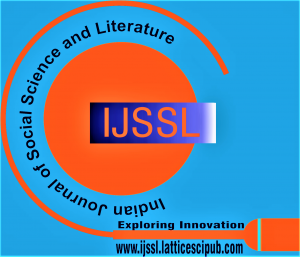![]()
Techniques of Speech Manipulation in Tourism Advertising Texts
Velichko Marina Aleksandrovna
Velichko Marina Aleksandrovna, Senior Lecturer, Department of Applied Linguistics and New Information Technologies, Faculty of Roman-Germanic Philology, Federal State Budgetary Educational Institution “Kuban State University”, Krasnodar, Russia.
Manuscript received on 23 January 2025 | First Revised Manuscript received on 10 February 2025 | Second Revised Manuscript received on 16 May 2025 | Manuscript Accepted on 15 June 2025 | Manuscript published on 30 June 2025 | PP: 12-14 | Volume-4 Issue-4, June 2025 | Retrieval Number: 100.1/ijssl.C116004030325 | DOI: 10.54105/ijssl.C1160.04040625
Open Access | Ethics and Policies | Cite | Zenodo | OJS | Indexing and Abstracting
© The Authors. Published by Lattice Science Publication (LSP). This is an open-access article under the CC-BY-NC-ND license (http://creativecommons.org/licenses/by-nc-nd/4.0/)
Abstract: In the fiercely competitive advertising world, particularly in the tourism industry, persuasive manipulation techniques are being increasingly used to engage consumers and influence their decisions. This paper examines various linguistic strategies employed in advertising texts, highlighting their role in shaping perceptions and creating a favourable impression. Essential techniques encompass euphemization, which involves substituting negative terms with neutral alternatives to foster a positive perception among consumers; the substitution of concepts, which connects familiar positive or negative ideas with products or services to elicit targeted emotional responses; and veiled comparisons, where advertisers skillfully position their offerings in a favorable light against competing objects or experiences. The text also explores the concept of rethinking, where well-known facts are recontextualised to construct a favourable narrative, alongside implanted evaluations that ascribe appealing qualities to products or services without scrutiny. The article delves into the art of speech linking, a subtle technique that fosters agreement by incorporating temporal phrases. It also explores implicatures, where underlying messages imply affordability and enjoyment without being directly stated. Additionally, rhetorical questions further engage potential clients. Employing these strategies, advertisers formulate messages that capture prospective clients’ attention and foster a sense of independent decision-making, ultimately enhancing their appeal and the effectiveness of their campaigns. Overall, the analysis reveals how these manipulative strategies shape consumer perceptions and choices in the context of tourism advertising.
Keywords: Manipulation Technique, Advertising Discourse, Euphemization, Implicatures, Speech Linking..
Scope of the Article: Linguistics
